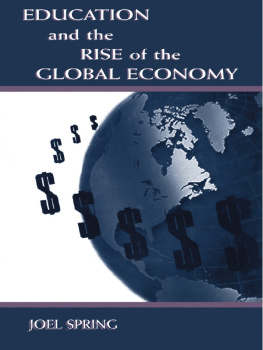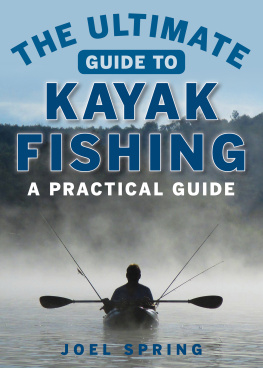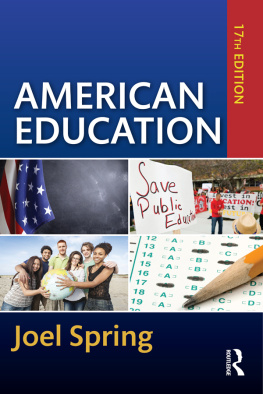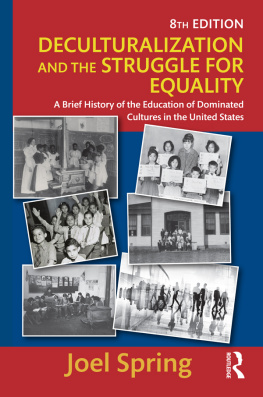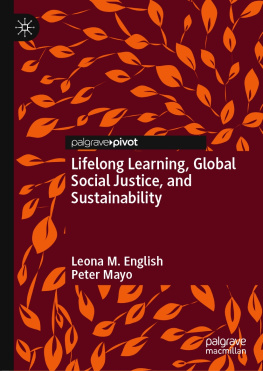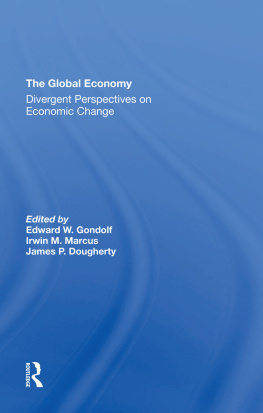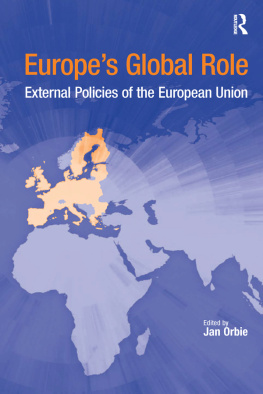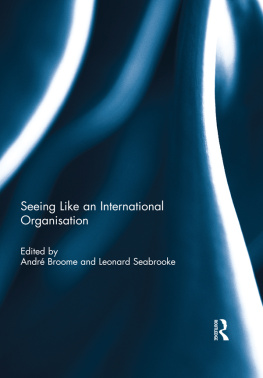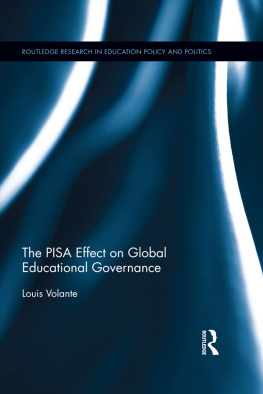This edition published in the Taylor & Francis e-Library, 2009.
To purchase your own copy of this or any of Taylor & Francis or Routledges collection of thousands of eBooks please go to http://www.ebookstore.tandf.co.uk/.
Copyright 1998 by Lawrence Erlbaum Associates, Inc.
All rights reserved. No part of this book may be reproduced in any form, by photostat, microfilm, retrieval system, or any other means, without prior written permission of the publisher.
Spring, Joel H.
Education and the rise of the global economy/Joel Spring.
p. cm.(Sociocultural, political, and historical studies in education)
Includes bibliographical references.
ISBN 0-8058-3012-X (alk. paper).
ISBN 0-8058-3013-8 (pbk.: alk. paper)
1. EducationSocial aspects. 2. EducationEconomic aspects. 3. EducationHistory. 4. EducationCross-cultural studies. 5. Education, ColonialHistory. 6. International education. 7. Human rights. I. Title. II. Series.
LC191.S686 1998
306.43dc21 986271
CIP
Sociocultural, Political, and Historical Studies in Education
Joel Spring, Editor
Spring The Cultural Transformation of a Native American Family and Its Tribe 17631995
Reagan Non-Western Educational Traditions: Alternative Approaches to Educational Thought and Practice
Peshkin Places of Memory: Whitemans Schools and Native American Communities
Spring Political Agendas for Education: From the Christian Coalition to the Green Party
Nespor Tangled Up in School: Politics, Space, Bodies, and Signs in the Educational Process
Weinberg Asian-American Education: Historical Background and Current Realities
Books (Ed.) Invisible Children in the Society and Its Schools
Shapiro/Purpel (Eds.) Critical Social Issues in American Education: Transformation in a Postmodern World, Second Edition
Lipka/Mohatt/The Cuilistet Group Transforming the Culture of Schools: Yupik Eskimo Examples
Benham/Heck Culture and Educational Policy in Hawaii: The Silencing of Native Voices
Spring Education and the Rise of the Global Economy
Pugach On The Border of Opportunity: Education, Community, and Language at the U.S.-Mexico Line
Hones/Cha Educating New Americans: Immigrant Lives and Learning
Gabbard (Ed.) Knowledge and Power in the Global Economy: Politics and the Rhetoric of School Reform
Preface
In Education and the Rise of the Corporate State (1972), I described an educational vision shared by a wide range of U.S. citizens with differing political viewpoints. In the late 19th and early 20th centuries, conservatives, socialists, Democrats, Republicans, progressives, and unionists were convinced that a corporate model of schooling would provide industrial efficiency and equality of opportunity. Although there were disputes over certain issues, the commonly held corporate model included (a) administration by trained experts; (b) use of standardized tests to measure student IQ, achievement, and interests; (c) character education; (d) extracurricular activities; (e) junior high school; (f) athletics; and (g) vocational guidance and education to track secondary students according to their future occupations. The goals of the corporate school system were to identify student potential through scientific testing and, after consultation with a vocational guidance counselor, place students in educational programs that would lead to appropriate occupations. The school functioned as a sorting machine to separate and train human resources to meet the demands of the labor market. Character education programs developed cooperation and school spirit in preparation for the cooperation and loyalty required by modern corporations.
The corporate model has evolved into the new global model discussed in this book. This book analyzes changes in education and economics since Education and the Rise of the Corporate State was written. Certain aspects of the corporate model still remain. Testing and human resource development continue to be important. However, the new global model addresses problems of technological change, quick exchange of global capital, and free markets. Rapidly occurring technological changed have left many workers unprepared for the new labor market and, according to some economists, have increased economic inequalities. The easy movement of global capital has made it possible for manufacturers to function in countries with the cheapest labor force. Also the global model includes the neocapitalists concern with maintaining free markets through government intervention. F.A.Hayek set the stage for the flourishing of neocapitalist thought after World War II. By the 1990s, free market ideas of neocapitalism were being applied to all aspects of life including schools. Differing from the laissez-faire traditions of the 19th century, neocapitalism calls for government intervention to promote and protect free markets. According to the standards of neocapitalism, education should be evaluated as an economic investment.
In general, new educational proposals for the global economy include lifelong learning, learning societies, international and national accreditation of work skills, multiculturalism, international and national academic standards and tests, school choice, and economic nationalism. Adherence to free market ideologies has resulted in a reliance on the methods of human capital accounting and government intervention to influence student decisions in the education market. The primary groups supporting this global model of schooling are the Organization for Economic Cooperation and Development, the World Bank, the United Nations, the European Union, and various national governments including the United States, the United Kingdom, Japan, and Singapore.
In chapter 1, I begin with a discussion of European colonialism. Colonialism provided the foundations for the modern global economy and disseminated European ideas about education, science, and technology. Of particular importance is the spread of English as the global language. In chapter 2, I examine Japans response to colonialism, which included the introduction of Western-style schooling, science, and technology. However, Japan was interested in maintaining Confucian culture while assimilating Western science and technology. Japan is a case study of a country that achieved economic success through a corporate model of schooling. In Singapore (chap. 3), Asian and Western ideas of education blended to create a model of global education. A product of British colonialism and Asian nationalism, Singapore is financially dependent on the global economy. In reaction too the economic strength of the United States and Japan, the European Union (chap. 4) was created as a regional trading bloc. The European Unions education policies are designed to bolster economic growth, reduce unemployment, and create Euro-nationalism. These programs include lifelong learning, Personal Skills Cards, a learning society, and the fabrication of a European culture. The United States and the United Kingdom (chap. 5), continue as important supporters of free market economics. Their educational programs are similar to those of the European Union. The Organization for Economic Cooperation and Development (OECD) and the World Bank (chap. 6) have shaped global education policies by the application of the human capital accounting methods to educational planning and evaluation. The United Nations (chap. 7) supports these general trends in the global economy. In addition, the United Nations Education for All program is targeted for the victims of the global economy. It is an attempt to fulfill the pledge made in the Universal Declaration of Human Rights that everyone has a right to an education.

